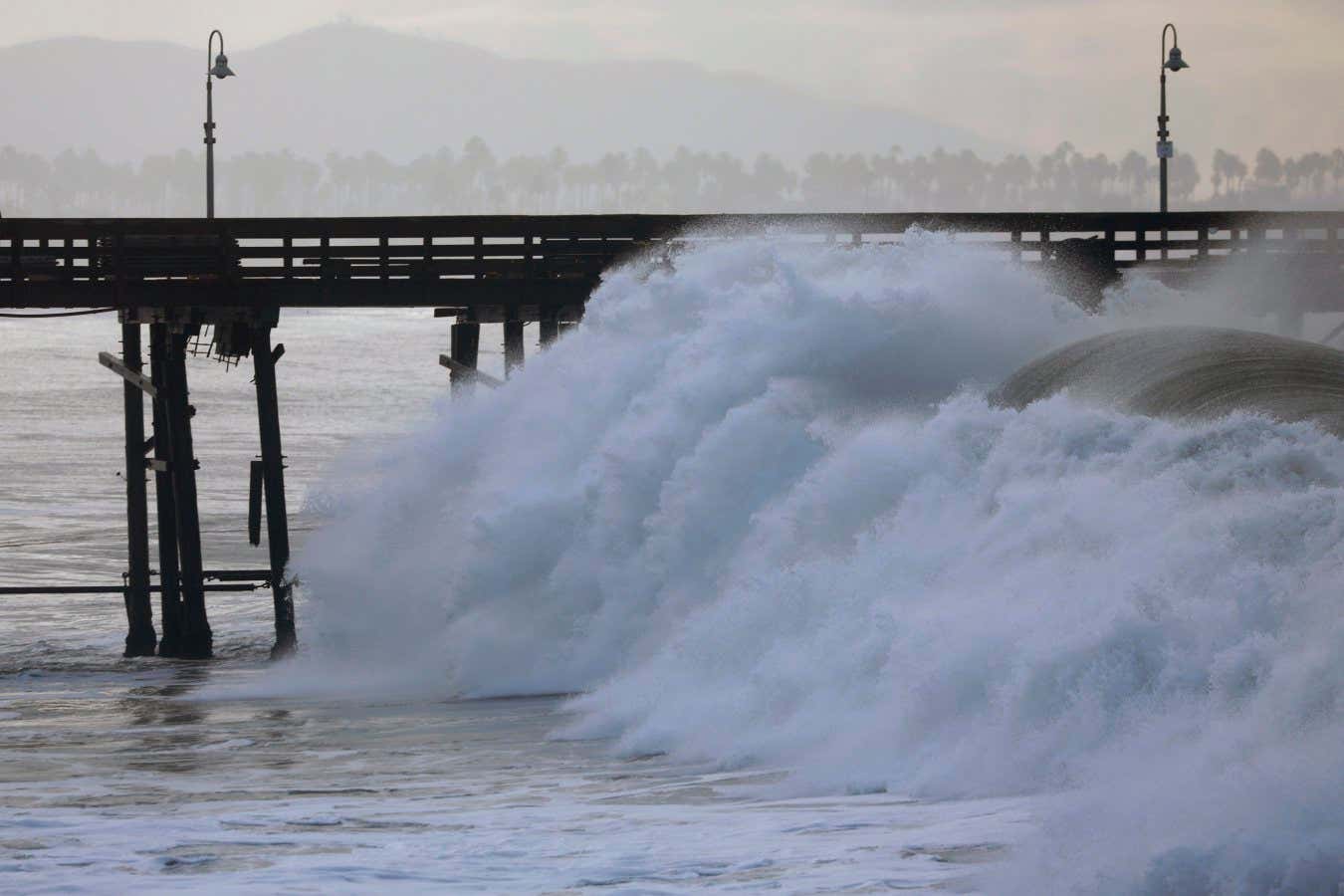The rate of warming in the oceans has more than quadrupled since 1985, suggesting global warming in general has undergone a marked acceleration
By Madeleine Cuff
28 January 2025
High sea temperatures contributed to stormy weather in California in late 2023
Kevin Carter/Getty Images
The surge in ocean temperatures to record-breaking levels in 2023 and 2024 is a sign that the pace of climate change has accelerated, say researchers.
Global ocean temperatures hit record highs for 450 days straight in 2023 and early 2024. Although some of the extra heat can be explained by an El Niño weather pattern emerging in the Pacific Ocean, about 44 per cent of the record warmth is down to the world’s oceans absorbing heat from the sun at an accelerating rate, according to Chris Merchant at the University of Reading, UK.
Read more
Something strange is happening in the Pacific and we must find out why
Advertisement
Merchant and his colleagues used satellite data to analyse ocean warming over the past four decades, concluding that the rate of warming has more than quadrupled since 1985.
The team says this rapid acceleration is down to a sharp change in Earth’s energy imbalance (EEI), a measure of how much heat is being trapped in the atmosphere. EEI has roughly doubled since 2010, causing the oceans to soak up much more heat now than they used to.
“The oceans set the pace for global warming in general,” says Merchant. “So, as an extension, global warming as a whole, including the land, has therefore accelerated.” Merchant says he is “personally convinced” that accelerating climate change was a major factor in the recent surge in ocean temperatures.
